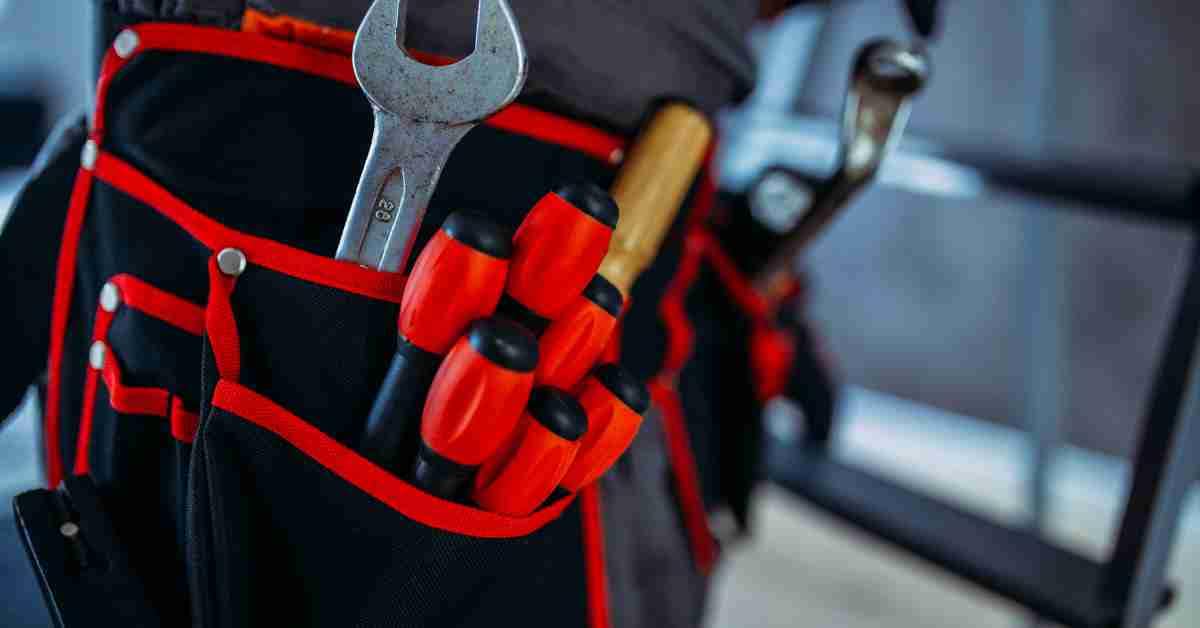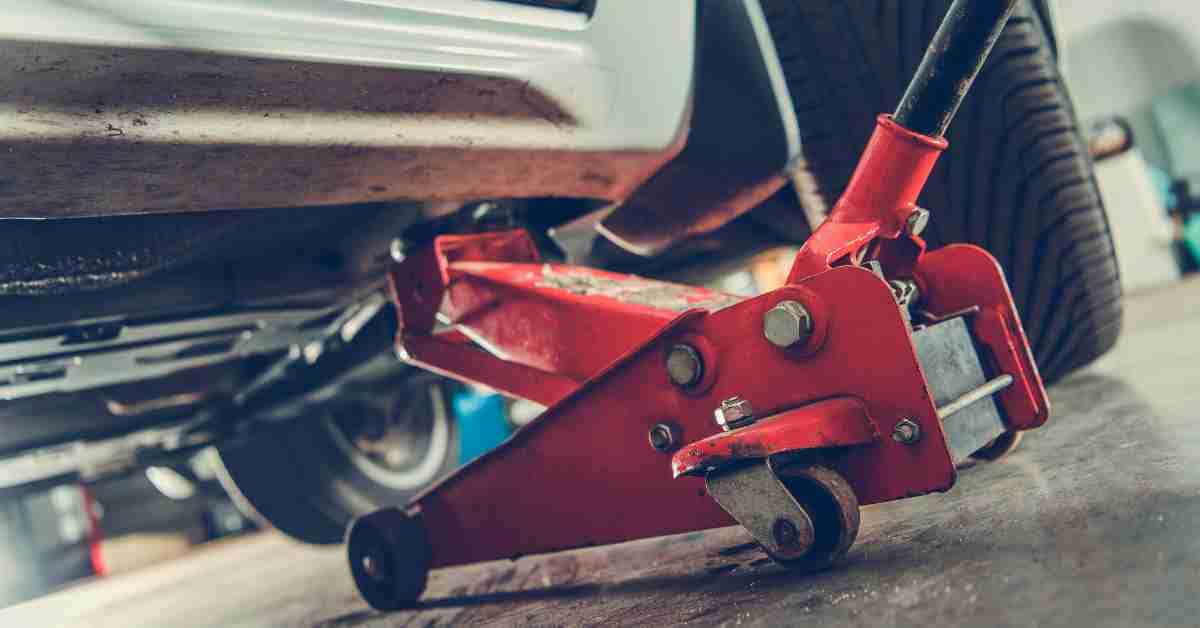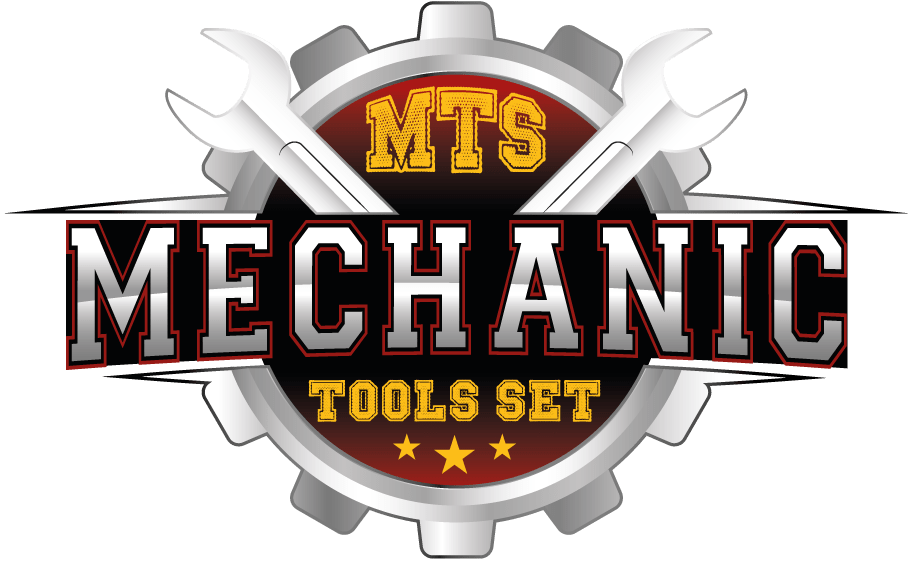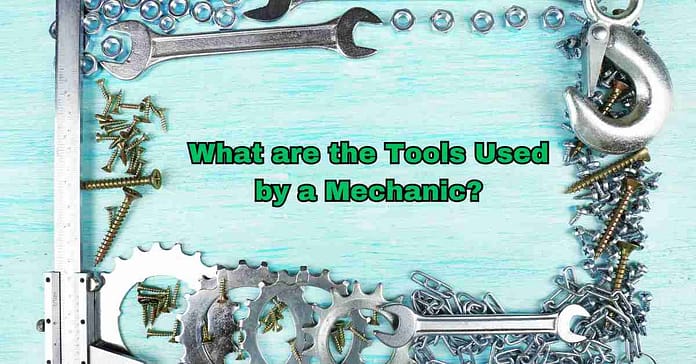A mechanic uses various tools such as wrenches and sockets to repair and maintain vehicles. These tools are essential for diagnosing and fixing mechanical issues quickly and efficiently.
Mechanics rely heavily on their tools to do their jobs effectively. From basic hand tools like wrenches and sockets to more specialized equipment like diagnostic scanners and lifts, mechanics need a wide range of tools to diagnose, repair, and maintain vehicles.
Basically, a good mechanic knows which tools to use for each job and how to use them safely and efficiently. Also, with the right tools and expertise, a mechanic can keep vehicles running smoothly and help prevent breakdowns and accidents on the road.
Basic Hand Tools
Significantly, basic hand tools are essential for mechanics to effectively perform various tasks in automotive repair and maintenance. Here, these tools are versatile, durable, and crucial for any mechanic’s daily work.
Screwdrivers
- Flathead and Phillips are the most common types.
- Used for tightening or loosening screws.
- Come in various sizes to fit different screws.
Wrenches
- Box-end and open-end are the primary types.
- Ideal for turning nuts and bolts.
- Available in metric and standard sizes.
Pliers
- Combination and needle-nose pliers are commonly used.
- Great for gripping, bending, and cutting wires.
- Helpful in accessing tight or hard-to-reach areas.
Specialized Tools

Additionally, specialized tools are essential for a mechanic to efficiently tackle specific tasks. Foremost, these tools are designed to handle the unique challenges encountered in the automotive repair process. Let’s delve into some of the specialized tools that mechanics utilize to ensure accurate and effective maintenance and repairs.
Torque Wrench
Further, a torque wrench is a precise tool used to apply a specific amount of torque to a fastener, such as a nut or bolt. This tool is crucial for ensuring that fasteners are tightened to the manufacturer’s specifications, preventing under- or over-tightening,, which can lead to component failure.
OBD-ii Scanner
Again, the OBD-II scanner is an indispensable diagnostic tool that enables mechanics to interface with a vehicle’s onboard computer system. This tool retrieves and interprets error codes, providing valuable insights into the vehicle’s health and performance. Mechanics can then use this information to identify and address issues efficiently.
Impact Wrench
An impact wrench is a powerful tool that utilizes torque to quickly and effectively loosen or tighten fasteners. This tool is especially valuable for handling stubborn or rusted bolts, significantly reducing the time and effort required to complete tasks such as tire changes and suspension work.
Diagnostic Equipment
Diagnostic equipment is essential for a mechanic to accurately identify and troubleshoot vehicle issues. These tools help in pinpointing problems and ensuring the right repairs are made. Here are the key diagnostic equipment used by mechanics:
Multimeter
Equally, a multimeter is a versatile tool for measuring voltage, current, and resistance in electrical circuits. Because, it helps mechanics diagnose electrical problems in the vehicle’s wiring, sensors, and other electronic components.
Compression Tester
Besides, a compression tester is used to measure the compression pressure in the engine cylinders. At this point, the tool helps mechanics determine the engine’s overall health and identify issues such as worn piston rings, valves, or head gasket leaks.
Vacuum Gauge
Likewise, a vacuum gauge is used to measure the intake of manifold vacuum pressure, which indicates the engine’s overall performance. Generally, mechanics use this tool to diagnose various engine problems, such as valve timing, ignition system issues, and vacuum leaks.
Power Tools
Furthermore, power tools are essential for a mechanic’s toolkit, providing the strength and precision needed to tackle various tasks. Basically, the purpose of these tools is to streamline, expedite, and enhance job performance. Let’s delve into the specific power mechanical sets that are vital for a mechanic’s work.
Air Compressor
Hence, an air compressor is a versatile one that provides power for a wide range of pneumatic tools. Inflating tires, powering impact wrenches, sanders, and spray guns are among its common uses. Lastly, the ability to adjust the air pressure makes it indispensable for different applications.
Electric Drill
Meanwhile, an electric drill is a staple in any mechanic’s arsenal. Drilling holes, tightening and loosening bolts, and other tasks are among the capabilities of this tool. With different drill bits and attachments, it can be adapted for different purposes.
Angle Grinder
Significantly, the angle grinder is a powerful tool for cutting, grinding, and polishing metal and other materials. It’s invaluable for shaping and smoothing metal surfaces, removing rust and old paint, and cutting through tough materials.
Lifting And Support Tools

However, in the automotive repair industry, lifting and supporting tools are essential for safely accessing the underside of vehicles and removing heavy components. This not only provides stability but also ensures the safety of our mechanics while working on vehicles. Let’s explore some of the key lifting and support tools used by mechanics.
Jack Stands
Additionally, Jack’s stands are crucial for supporting vehicles once they are lifted off the ground. These robust, adaptable stands ensure a steady foundation for the vehicle, keeping it from toppling during maintenance work. Furthermore, they come in various weight capacities to accommodate different vehicle sizes.
Hydraulic Lift
Besides, a hydraulic lift serves as a mighty tool for raising vehicles, making it easier to work on their undercarriages. Obviously, mechanics can effortlessly lift heavy vehicles using hydraulic power, making it time-saving and efficient for various maintenance and repair tasks.
Engine Hoist
Basically, an engine hoist is an essential tool for removing and installing engines, making it an indispensable part of a mechanic’s toolkit. This is because it allows mechanics to safely lift and maneuver heavy engines, facilitating engine repairs and replacements with precision.
Safety Gear
Therefore, when working as a mechanic, safety gear is essential to protect yourself from potential hazards in the workshop.
Safety Glasses
- Prevent eye injuries from debris or chemicals
- Ensure clear vision while working on intricate tasks
- Shield eyes from sparks or splashes
Gloves
- Protect hands from cuts, bruises, and burns
- Enhance grip and dexterity when handling tools or parts
- Prevent exposure to harmful chemicals or oils
Ear Protection
- Reduce the risk of hearing damage from loud machinery
- Minimize noise levels to a safe threshold
- Ensure long-term ear health and comfort
Maintenance And Storage
Moreover, maintenance and storage are crucial aspects of a mechanic’s daily routine to ensure efficiency and safety in their work.
Toolbox Organization
Firstly, proper organization of tools in a mechanic’s toolbox is essential for quick access and workflow.
Tool Maintenance
Further, regular maintenance of tools helps to prolong their lifespan and maintain their optimal performance.
Proper Storage
Finally, adequate storage of tools in a clean and dry environment prevents damage and rust.
Frequently Asked Questions
What Are The Main Tools Of A Mechanic?
Generally, the main tools of a mechanic include wrenches, sockets, screwdrivers, pliers, and hammers. These tools are essential for repairing and maintaining vehicles.
What Do Mechanics Use The Most?
Mechanics use most tools, such as wrenches, sockets, screwdrivers, and diagnostic equipment, for repairs.
What Is Something Every Mechanic Needs?
A mechanic needs a good set of tools to effectively diagnose and fix vehicles. This includes basic hand tools like wrenches, sockets, and pliers, as well as more specialized equipment like diagnostic scanners and lifts. Having the right one can save you time and money in the long run.
What Equipment Is Used In A Mechanic Workshop?
Mechanical workshops use a variety of equipment, including lifts, air compressors, impact wrenches, socket sets, torque wrenches, diagnostic tools, and specialty tools such as brake bleeders and engine hoists. This equipment helps mechanics repair and maintain vehicles efficiently and effectively.
Conclusion
To sum up, a mechanic relies on a variety of tools for their work. From basic hand tools like wrenches and screwdrivers to specialized diagnostic equipment, each plays a crucial role in maintaining and repairing vehicles. Understanding the tools used by a mechanic gives insight into their expertise and dedication.

